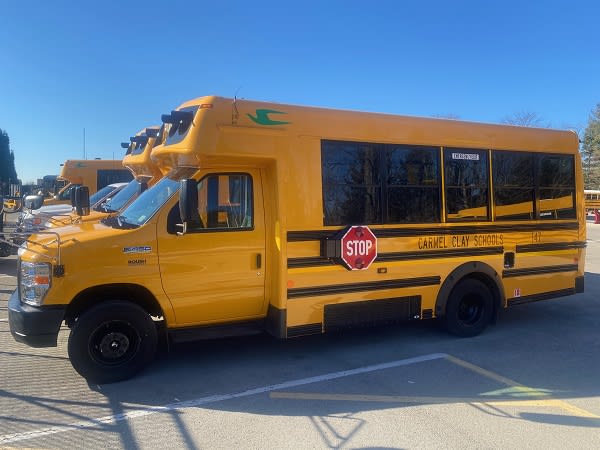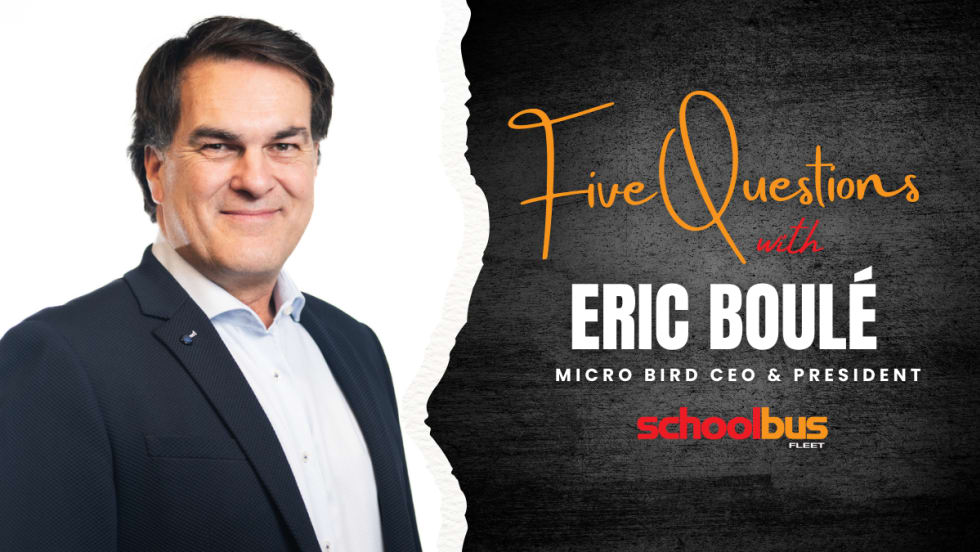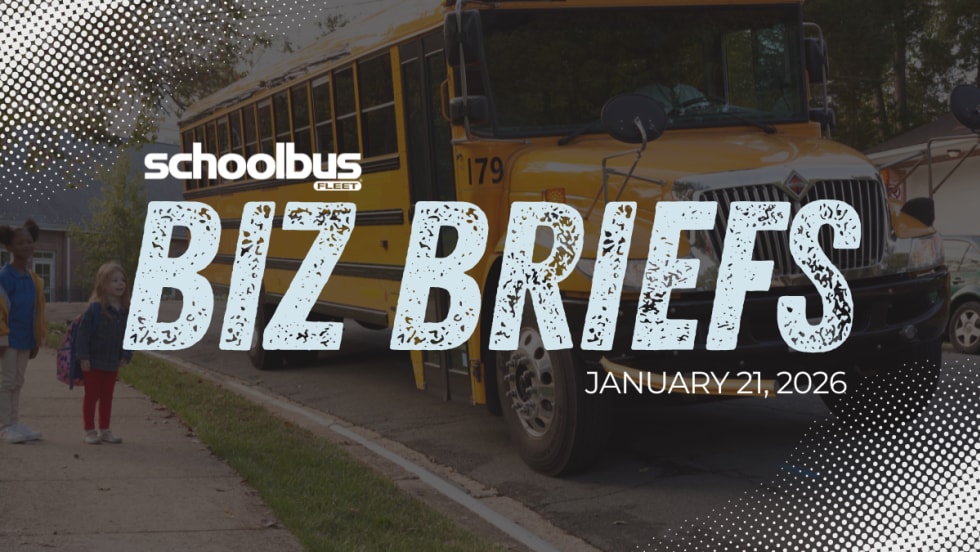Micro Bird’s Type A propane school bus has received certification from California’s air quality agency.
The manufacturer’s G5 Type A school bus, equipped with Roush CleanTech's Gen 5 propane fuel system, is reportedly the first Type A propane vehicle to be certified to the California Air Resources Board’s (CARB’s) optional low nitrogen oxide (NOx) emissions standard of 0.05 grams per brake horsepower-hour (g/bhp-hr), according to a news release from Micro Bird and Roush CleanTech. The certification reportedly makes the G5 Type A school bus 75% cleaner than federal U.S. emission standards.
“Every [school] district wants to lessen students’ exposure to damaging exhaust that can have negative health effects on children,” said Steve Girardin, president of Micro Bird. “With the Micro Bird G5 propane bus’s new CARB certification, we help our customers lower their carbon footprint while also offering the most horsepower of any Type A bus.”
Micro Bird buses integrating Roush CleanTech’s Gen 5 system are designed to reduce NOx and greenhouse gas emissions, which can help optimize fuel efficiency, according to the two companies. The buses can also operate on renewable propane to further reduce emissions and carbon intensity values. Featuring the compact, 350-horsepower Ford 7.3L engine, the Gen 5 system benefits from all of Ford’s performance and quality characteristics, such as horsepower, torque, and towing, while maintaining the OEM factory warranty, according to Micro Bird and Roush CleanTech.
More than 40 school districts across North America operate nearly 300 Micro Bird Type A propane buses, including Carmel Clay Schools in Indiana, according to the two companies.
“With our Type A propane buses, we save money due to the low cost of maintenance and fuel, and the low emissions help us do our part to clean up air quality,” said Ron Farrand Jr., director of facilities and transportation at Carmel Clay Schools.
On average, propane fuel costs about 40% less than gasoline and 50% less than diesel, according to Micro Bird and Roush CleanTech.













